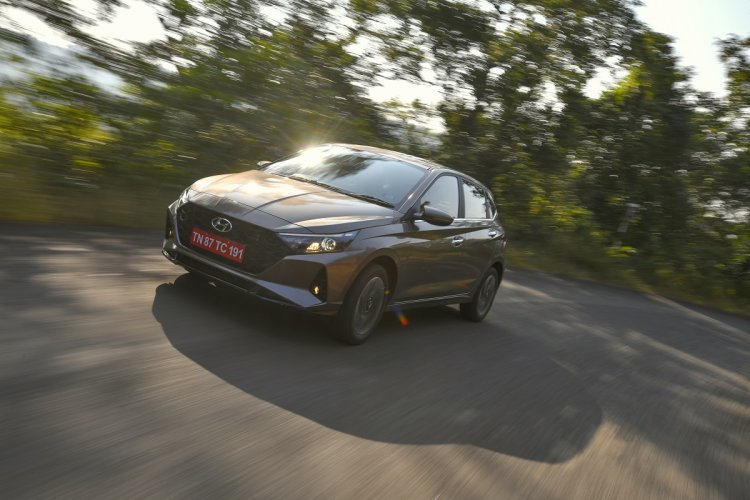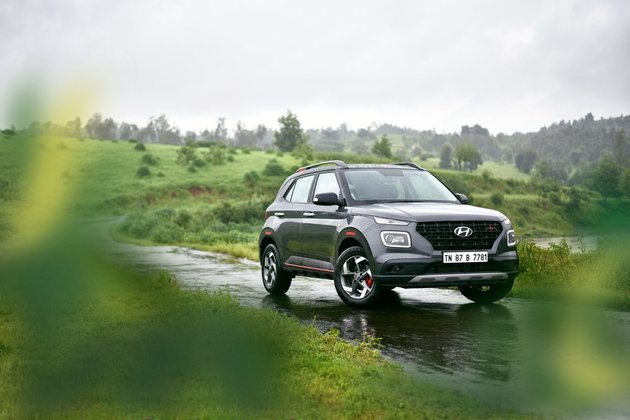Along with Volkswagen, it has been Hyundai who has really been bringing turbo-petrol engines to the masses in India. Down-sized turbo-petrol engines really seem to be the way forward for the next few years in India and Hyundai has been leading this change by offering their 1.0L, three-cylinder turbo-petrol engine across almost their entire lineup. You will find this 1.0L turbo-petrol engine in the Grand i10 Nios, the new i20, the Verna and the Aura and also the Venue. Hyundai also has a larger 1.4L turbo-petrol engine but that's solely offered in the Creta.
Hyundai offers the 1.0L turbo-petrol engine in different states of tune in different cars. The Nios and the Aura get the 100hp version of the engine while the Verna, Venue and the i20 get the 120hp version. Its interesting to note that Hyundai did not detune the engine for the i20, which is a hatchback and offers it in the same state-of-tune as their sub-compact SUV and their sedan. That makes the i20 the most powerful hatchback in its class. What Hyundai has also brought to the masses is a DCT gearbox with their 7-speed DCT unit. So here we though of comparing the acceleration of the Hyundai i20 vs Hyundai Venue in their turbo-petrol DCT variants to see which is faster.
Also Read : Honda City vs Volkswagen Vento - Petrol-Manual Acceleration Comparison
Hyundai i20 vs Hyundai Venue - Specification Comparison
| Hyundai i20 | Hyundai Venue | |
| Engine | 1.0L 3-cyl turbo-petrol engine |
1.0L 3-cyl turbo-petrol engine
|
| Power | 120hp | 120hp |
| Torque | 172Nm | 172Nm |
| Transmission | 7-speed DCT gearbox |
7-speed DCT gearbox
|
| Weight | - | 1171 kg |
As already mentioned, both the Hyundai i20 and Venue are powered by the same 1.0L three-cylinder turbo-petrol engine in the exact same spec of tune. The engine produces 120hp and 172Nm of peak torque and comes mated to a 7-speed DCT gearbox in both the cars. While Hyundai hasn't yet revealed the official kerb weight of the i20, we can surely expect it will be lighter than the Venue turbo-petrol DCT which has a kerb weight of 1171 kg. Hyundai say the i20 is about 100kg lighter than the previous-gen model and that should translate to some sprightly performance.

Hyundai i20 vs Hyundai Venue - Acceleration Comparison
| Hyundai i20 |
Hyundai Venue
|
|
| 0-100kmph (First Attempt) | 11.05 seconds | 13.25 seconds |
| 0-100kmph (Second Attempt) | 10.80 seconds | 13.05 seconds |
| 0-100kmph (Third Attempt) | 11.00 seconds | 12.93 seconds |
Well, the numbers clearly speak for themselves. The fastest time achieved in the Hyundai i20 in our tests was 10.80 seconds, while the fastest time achieved with the Venue was 12.93 seconds. That's a difference of over two seconds brought about just by weight. Both the cars have identical power and torque figures and the DCT gearbox is identical too. However, the greater weight that comes with a SUV-ish body style clearly gives the i20 the advantage in acceleration.

Summarizing this test, we'd say that if you want a fun-to-drive car and also want to go fast, SUVs are not the best things out there in the market. Conversely, hatchbacks can be really fun to drive and the new i20 does meet up to that expectation in some respect. Again, its not as good as the VW Polo but its certainly better than most sub-compact SUV. There's however no denying the advantages that the added ground clearance in an SUV brings to you.
Stay tuned to IndianAutosBlog.com for more Hyundai updates and other four-wheeler news.































